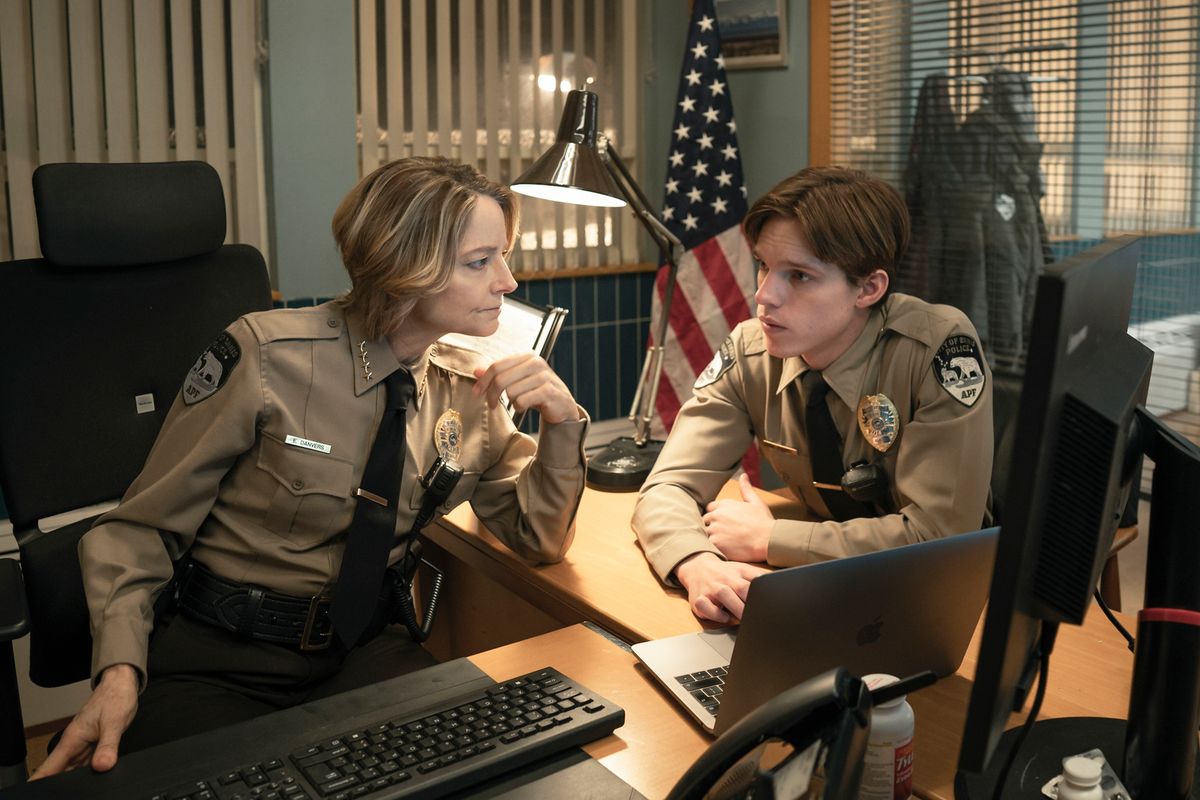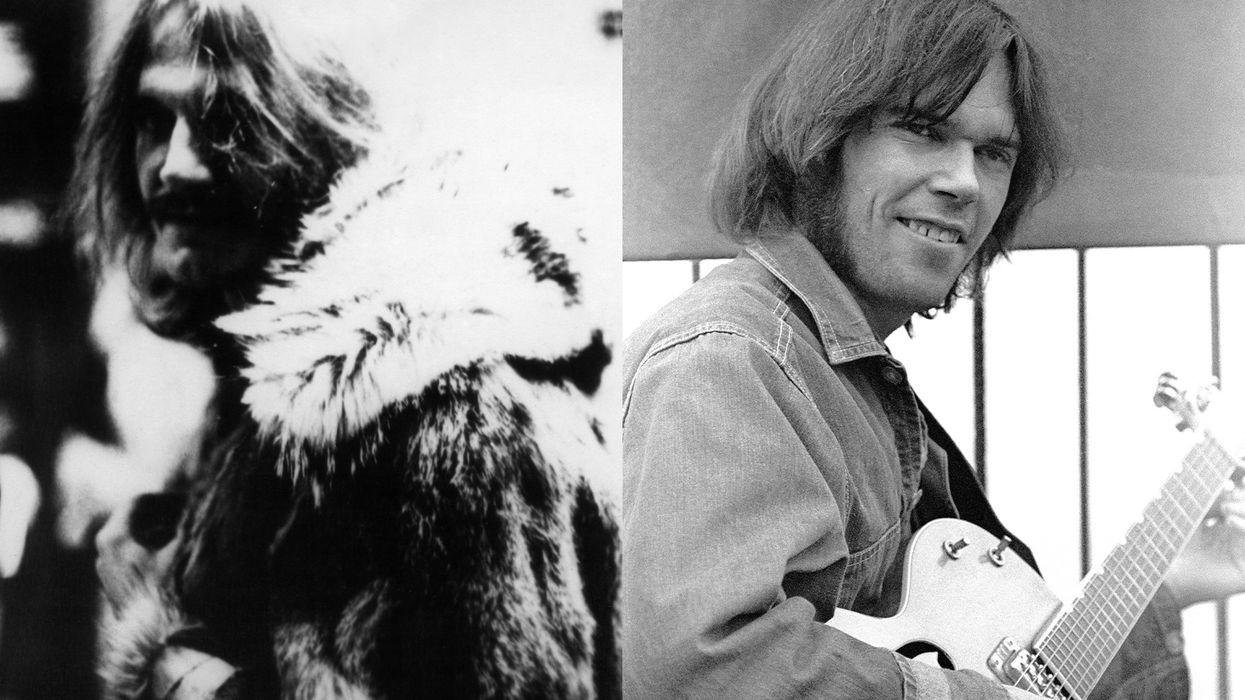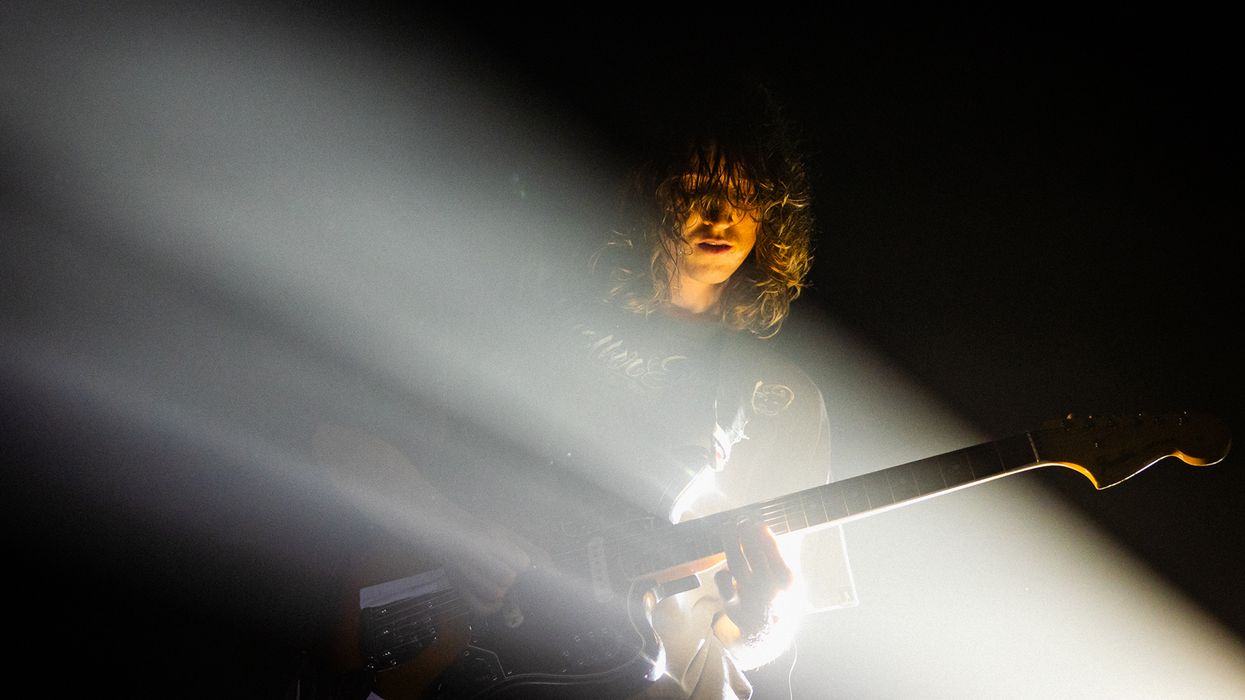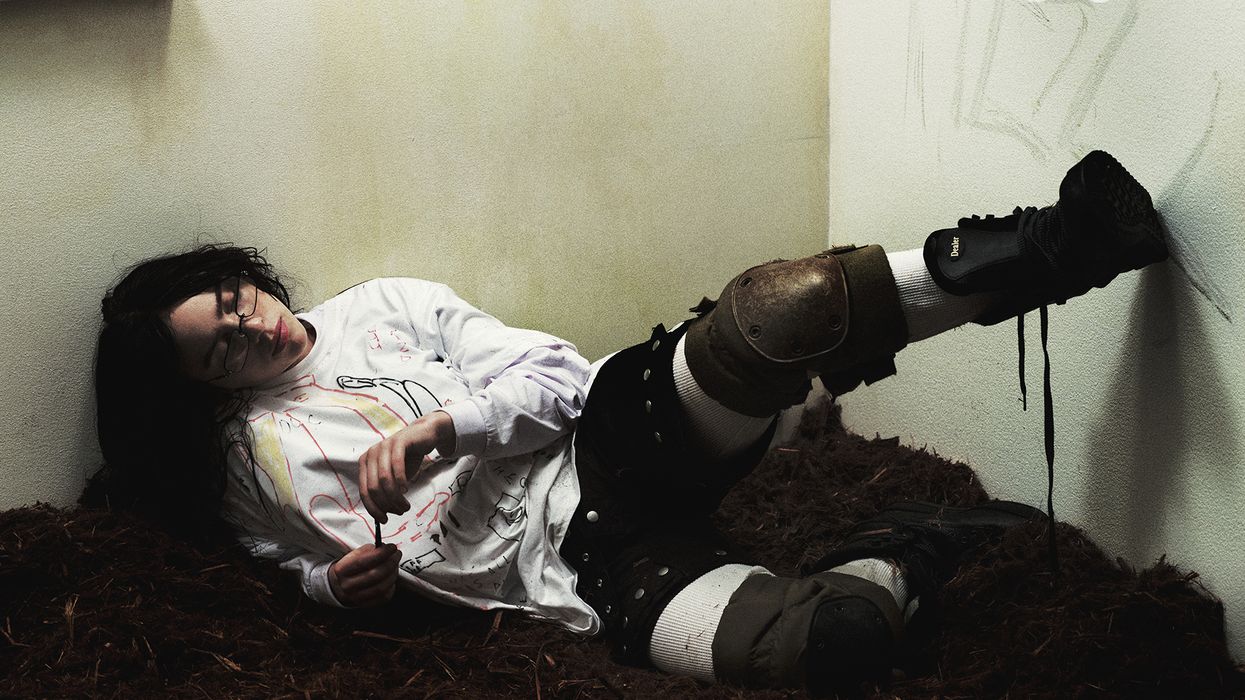This post contains spoilers for the premiere of True Detective: Night Country, which is now available on HBO and Max.
Early in True Detective: Night Country, we are told that it is December 17, aka the date of the last sunset of the year in the remote northern town of Ennis, Alaska. For a stretch each winter this close to the top of the world, the darkness is inescapable, making it impossible to differentiate day from night without a watch or other device that tells you whether it’s a.m. or p.m. It’s an evocative period in which to set any kind of mystery or thriller(*), and especially one like this that’s trying to hold multiple ideas in each hand.
(*) Christopher Nolan’s Insomnia took the inverse approach, plopping Al Pacino into Alaska during a period of perpetual daylight, while other projects like 30 Days of Night take place around the same time of year as Night Country.
On the one hand, we have the mystery of what happened to the scientists from the Tsalal research station, all of whom vanish after an unnerving teaser, several of whom are found at the conclusion of the episode, naked and frozen to death in positions that make it clear they all died screaming. Has something mystical happened? Certainly, the fact that the bodies are discovered by Rose (Fiona Shaw), after being pointed in their direction by the ghost of her late husband Travis, would argue for this. But Ennis police chief Elizabeth Danvers (Jodie Foster) has nothing but contempt for Native traditions and superstitions. At one point, she mockingly asks Indigenous ex-partner Evangeline Navarro (Kali Reis) if a spirit animal came to her in a dream to discuss a case. She is convinced this all has a wholly rational explanation, and won’t stop digging until she finds one.
On the other hand, we have the question of whether we should be treating Night Country wholly as its own thing, or constantly comparing it to the 2010s version of the franchise that began with Rust Cohle, Marty Hart, and the Yellow King. Giving the season a subtitle is apparently enough to give writer/director Issa López a “created by” credit, where usually in these situations, a new showrunner is lucky to get a “developed by” credit, no matter how different their work is from the person who created the first season. The slight tweak in name, along with adding words to the name, suggests a wholly fresh start. But Night Country is at least sometimes in conversation with what Nic Pizzolatto was doing, particularly in his first and third seasons(*).
(*) We try not to talk about the second year, the one with Ray Velcoro threatening grade school bullies.
The line of demarcation between day and night has been erased in Ennis for the time being. López similarly wants to leave things open at this stage as to what is causing these events, and as to how much Night Country has in common with earlier True Detective stories.
Pizzolatto, for instance, was fond of bouncing around between multiple timelines. This episode is entirely contemporary, though there are occasional glimpses of things from the past: Navarro speaking with a dying fellow soldier, Danvers hearing a small child call her Mommy. These could be memories, dreams, spiritual visions, or some combination of all of the above. But even beyond that, the past is always present for these characters. Navarro works for the state police because she and Danvers had a terrible falling out over an old case, and the two remain bitter in their disagreement over what happened to Inupiaq woman Annie K. There’s also tension between Danvers and her stepdaughter Leah (Isabella Star LaBlanc ), including a drunk-driving incident in their shared past that Danvers refuses to talk about, and some ugly backstory between Danvers and her top deputy Hank Prior (John Hawkes). Hank’s son Peter (Finn Bennett) works with them, and even though Danvers is not his mom, he reacts to all the conflict between them like a boy who has to watch his parents fight. So even though the story is moving forward chronologically, it feels as if we are getting implied glimpses of earlier periods, rather than in flashbacks where Jodie Foster wears a wig and some de-aging makeup.
As for the paranormal versus mundanity of evil question, the premiere mostly manages to have things both ways. Rose finding the bodies by following the ghost of her husband certainly tilts the scales toward the supernatural. But there’s a sense even this early that being in this isolated place, at this moment where the sun has taken a long vacation, makes people see and think things that aren’t there(*). The discussion of the Annie K case flips the dynamic that Danvers thinks she has with Navarro. Here, it’s Navarro who sees a concrete, entirely human explanation: Annie led a protest against the local mine that has been wreaking ecological havoc on Ennis, and the mining company had her killed. And it’s Danvers who claims a more ephemeral explanation for it all, telling Pete, “Ennis killed Annie. This fucking place. No killer was ever going to be found.”
(*) Not just animals: the season opens with a herd of caribou sprinting off a cliff, perhaps eager to get away from all that’s about to happen.
There’s a lot to be impressed with here, starting with Foster leaning into the abrasiveness of this character she’s playing, and the much less seasoned Reis holding her own opposite the two-time Oscar winner through sheer screen presence.
There’s a lot to be impressed with here, starting with Foster leaning into the abrasiveness of this character she’s playing, and the much less seasoned Reis holding her own opposite the two-time Oscar winner through sheer screen presence. But the most impressive part is how López is able to balance the lightness and the dark, despite the ending of daylight. Night Country is not a laugh riot, nor would such an approach really fit the material. But there is just enough humor, and just enough puncturing of the intense personae adopted by the two leads, for the show to avoid the relentless commitment to grimness that had even the best stretches of the Pizzolatto years verging on self-parody. It’s just small moments: Danvers getting exasperated by her deputies’ inability to turn off the “Twist and Shout” scene from Ferris Bueller’s Day Off in the Tsalal rec room, or Navarro’s sex buddy Qavvik (Joel D. Montgrand) objecting to her using his SpongeBob toothbrush, or the whole weird dynamic between Danvers, Hank, and Pete. That kind of material works wonders, especially when López is so effective at crafting unsettling imagery the rest of the time, from one of the Tsalal scientists shivering in a corner right before the lights go out, all the way to the horrifying tableau of the screaming corpses in the closing minutes.
López’s breakout 2017 film Tigers are Not Afraid blended crime drama with horror and magical realism, so this blurring of genre, and of reality, all feels right up her alley. Is it a coincidence that Danvers’ dream/vision of the child calling her Mommy is followed by her finding a stuffed polar bear, shortly before a very real and large one sidles up to a patrol car? Or that the Tsalal researchers are allegedly investigating the origins of life, and the abandoned lab’s whiteboard has the message “We are all dead” written on it?
All in all, it’s an impressive premiere, whether you want to call this the fourth season of an old show or the first season of a new one. At one point, Navarro visits Annie K’s brother Ryan to talk about the case. Talk turns to matters spiritual, and when Ryan hears that Navarro believes in God, he says that it must be nice to know we’re not alone. Navarro replies, with certainty, “No, we’re alone. God, too.” The people of Ennis feel alone all the way up there in the darkness, but they also have each other if they can ignore old wounds. Night Country doesn’t have to stand alone if you don’t want it to. But it also functions just splendidly even if you’ve never heard about time being a flat circle.














 Catering Presented By The Food DudesPhoto by Snapdrg0n
Catering Presented By The Food DudesPhoto by Snapdrg0n Catering Presented By The Food DudesPhoto by Snapdrg0n
Catering Presented By The Food DudesPhoto by Snapdrg0n Catering Presented By The Food DudesPhoto by Snapdrg0n
Catering Presented By The Food DudesPhoto by Snapdrg0n
 Photographer: Raphaëlle Sohier / Executive production: Elizabeth Crisante & Amanda Dorenberg / Design: Alex Filipas / Post-production: Bryan Egan/ Headpiece: Tristan Réhel
Photographer: Raphaëlle Sohier / Executive production: Elizabeth Crisante & Amanda Dorenberg / Design: Alex Filipas / Post-production: Bryan Egan/ Headpiece: Tristan Réhel Photo: Raphaëlle Sohier
Photo: Raphaëlle Sohier Photo: Raphaëlle Sohier/ Photo production: Bryan Egan/ Blazer:
Photo: Raphaëlle Sohier/ Photo production: Bryan Egan/ Blazer:  Photo: Raphaëlle Sohier/ Blazer: Vivienne Westwood/ Skirt :
Photo: Raphaëlle Sohier/ Blazer: Vivienne Westwood/ Skirt : 

